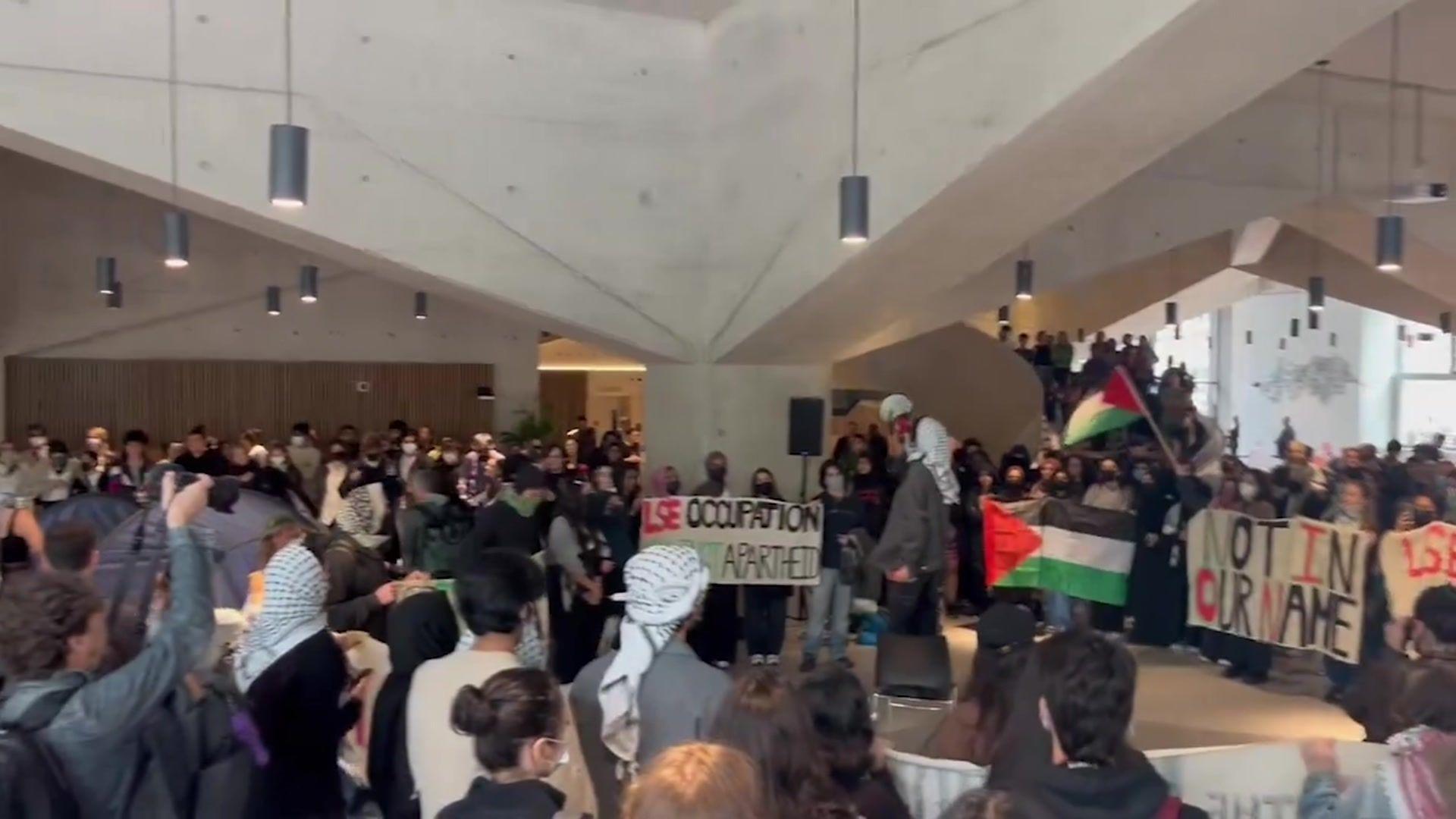Pro-Palestine students end LSE building encampment
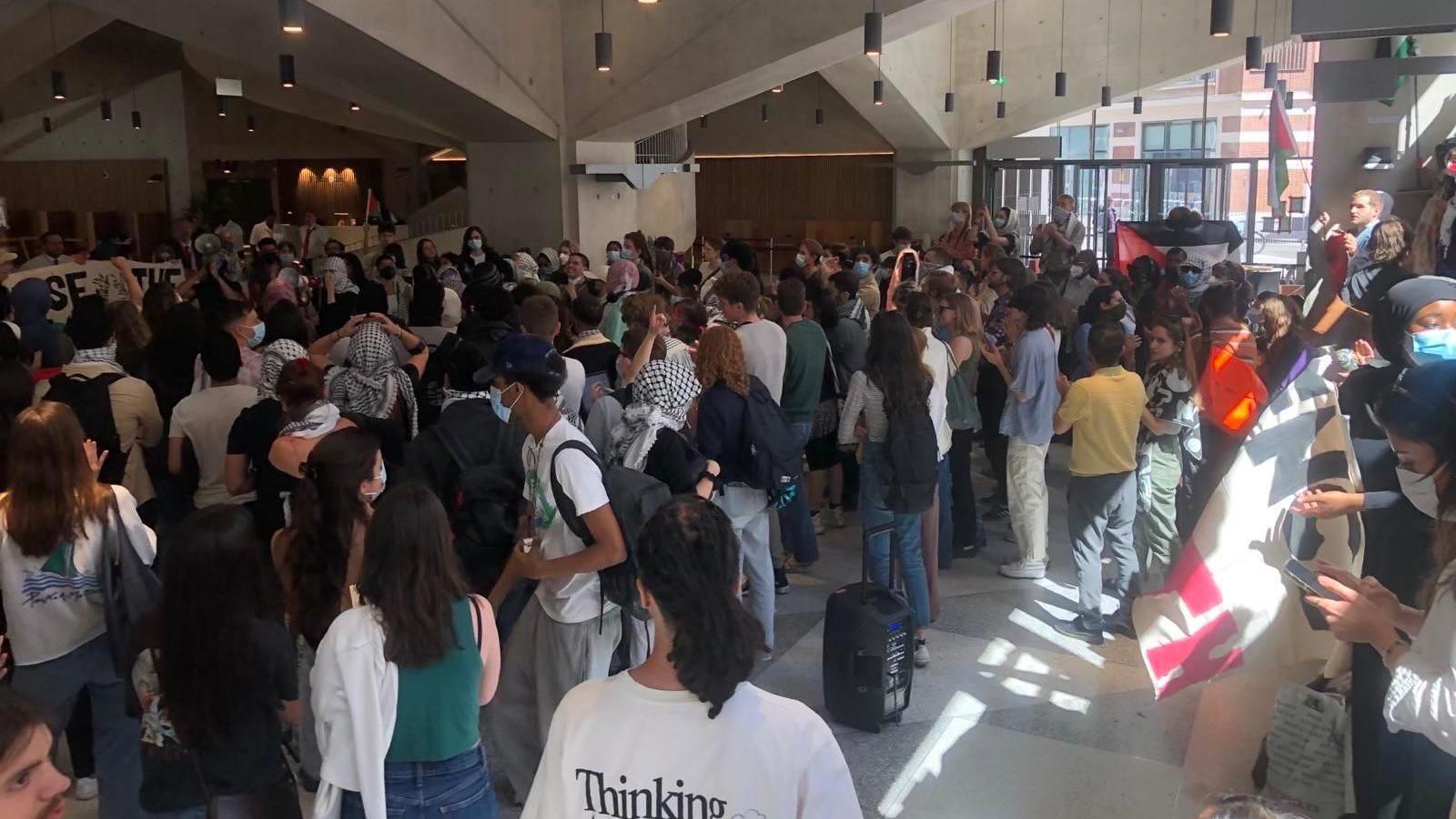
Activists held a rally inside the Marshall building before dismantling the encampment
- Published
Pro-Palestinian student protesters have dismantled their month-long encampment on the ground floor of a London School of Economics (LSE) building.
The group had set up the encampment within the Marshall Building in central London on 14 May - but had lost a legal battle and were ordered to leave.
They held a rally before they removed tents, signs and bin bags, and climbed out through the building's windows at 15:30 BST - just 30 minutes before the deadline set in the court order.
The university said it decided to apply for the court order after "exhausting all other options".
The group set up the encampment after the release of the Assets in Apartheid report by the LSE Students' Union's Palestine Society.
The report claims that LSE has invested £89m in 137 companies involved in the conflict in Gaza, fossil fuels, the arms industry or nuclear weapons production.
Dozens of students have since been staying at the encampment for more than a month and had vowed to remain there until LSE met a series of demands, including divestment and democratisation of the financial decision-making process.
LSE previously said it would carefully consider the report and hoped for "peaceful dialogue".
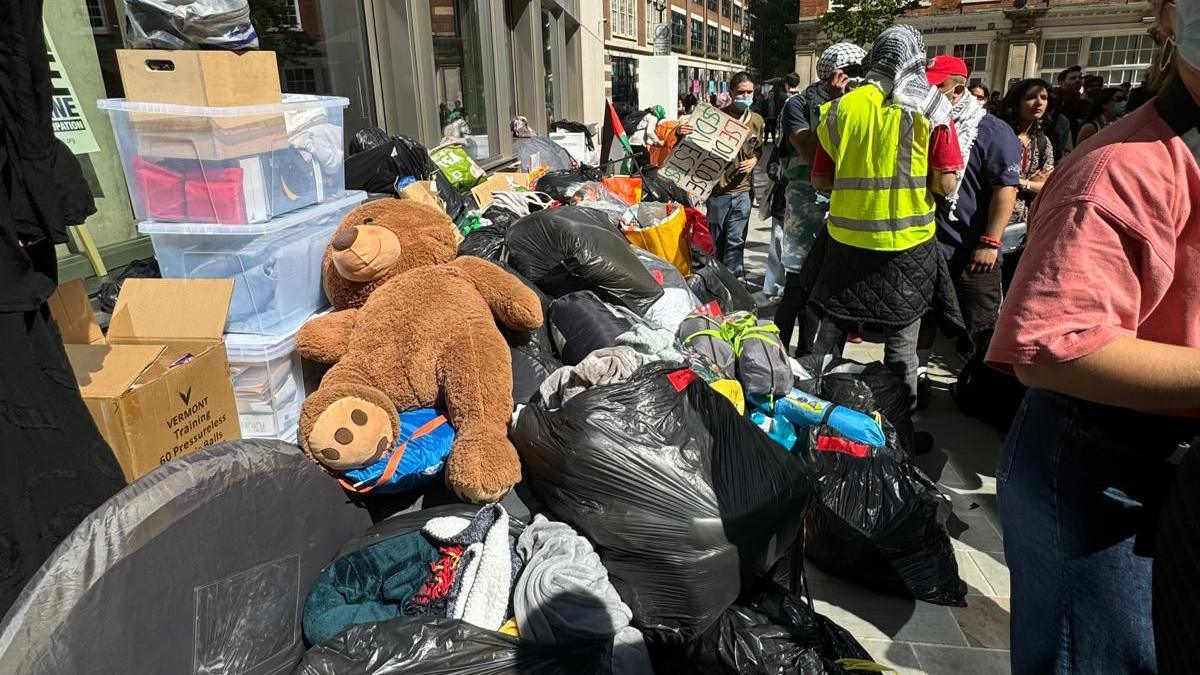
The activists' belongings were removed from the Marshall building
Annabelle, an LSE undergraduate who was among those leaving the encampment, told BBC News the rally was "energetic but peaceful".
Ethan Chua, a spokesperson for the protest group, said it was "incredibly shameful" that the university had taken them to court and had decided to "criminalise them instead of engaging with their substantive demands".
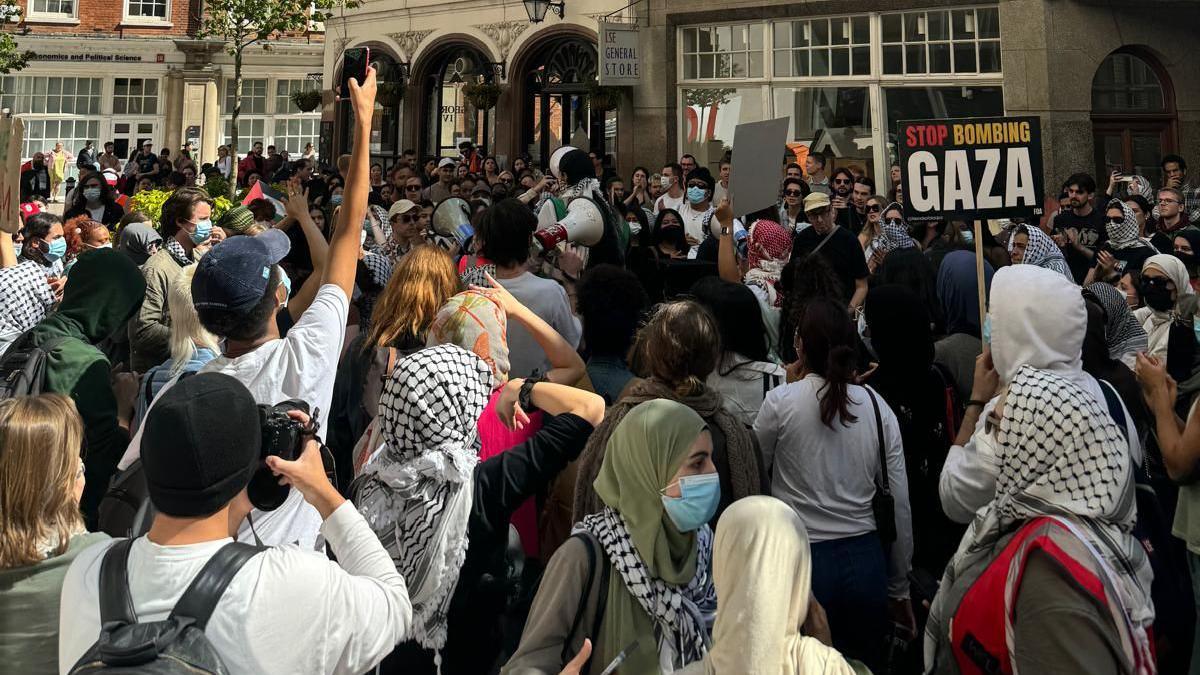
Protesters said negotiations continued with the university administration
An LSE spokesperson said: "[The interim possession order] was applied for following careful consideration, including in relation to the safety of the protesters. This decision was taken after exhausting all other options."
They said fire safety was one of the reasons for applying for the order.
The protest group said negotiations continued with the university administration about their demands.
Listen to the best of BBC Radio London on Sounds and follow BBC London on Facebook, external, X, external and Instagram, external. Send your story ideas to hello.bbclondon@bbc.co.uk, external
Related topics
- Published14 June 2024
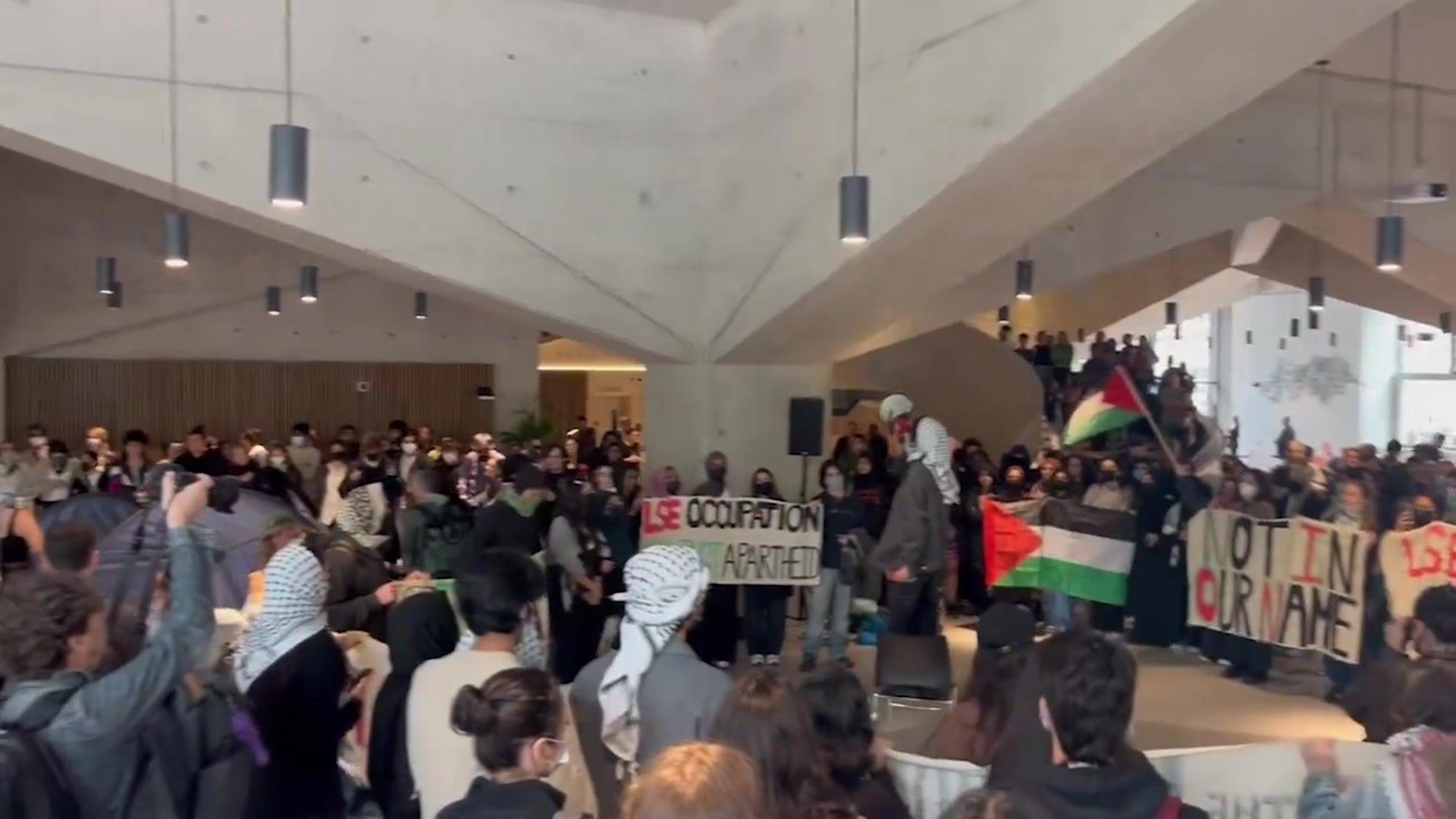
- Published14 May 2024
